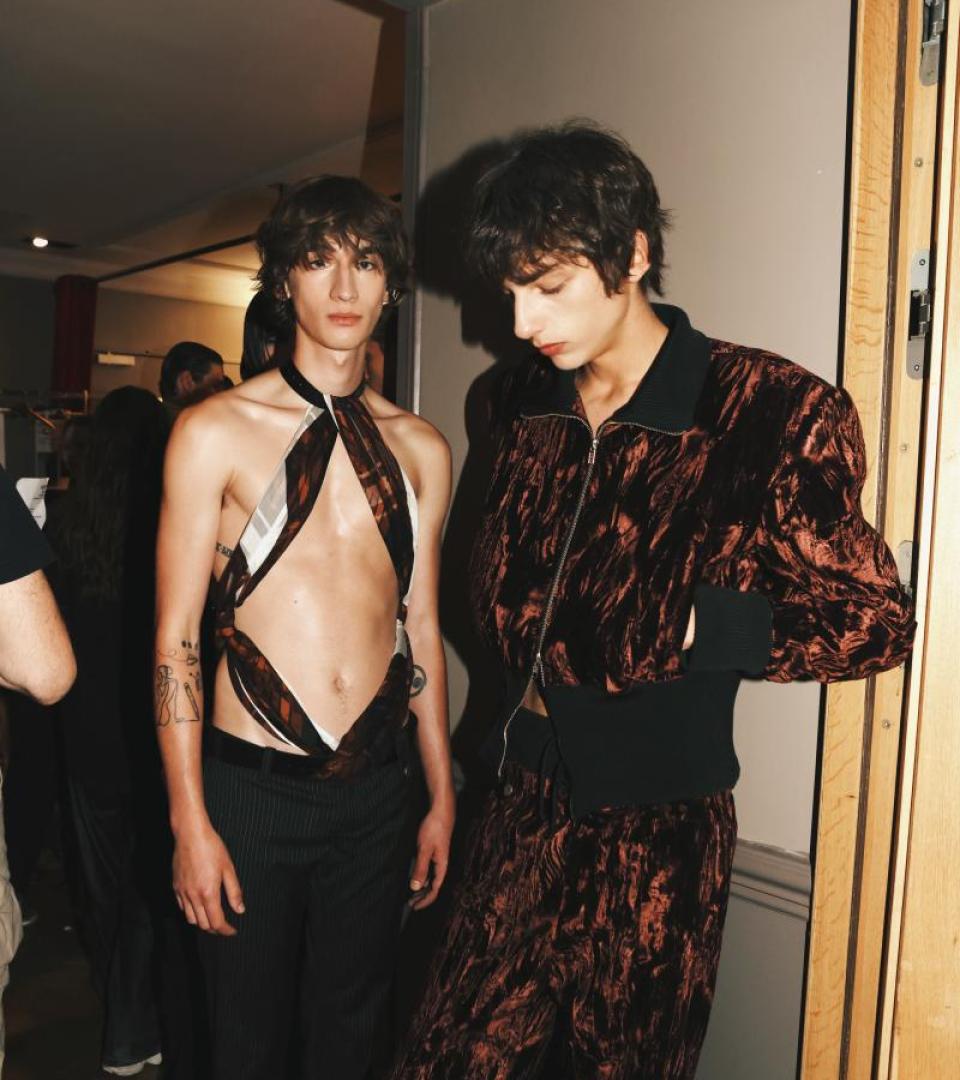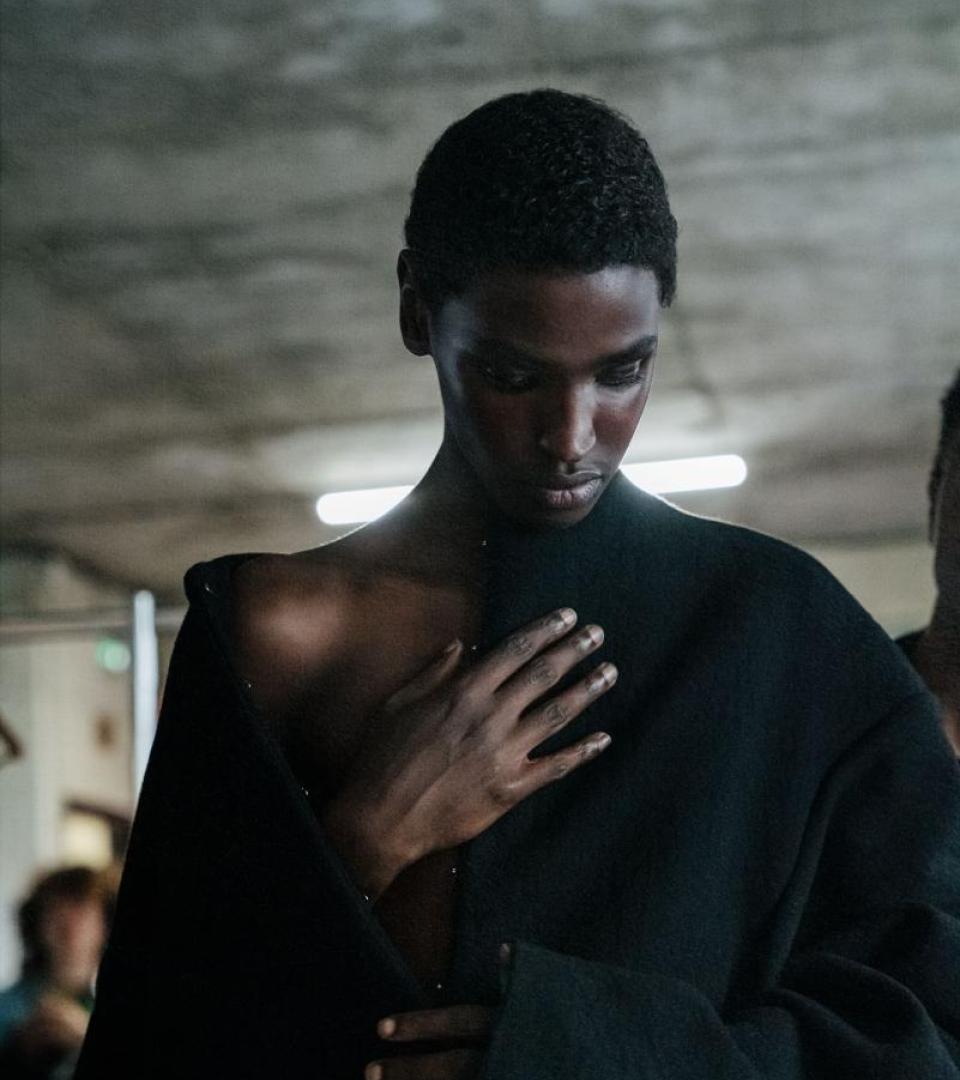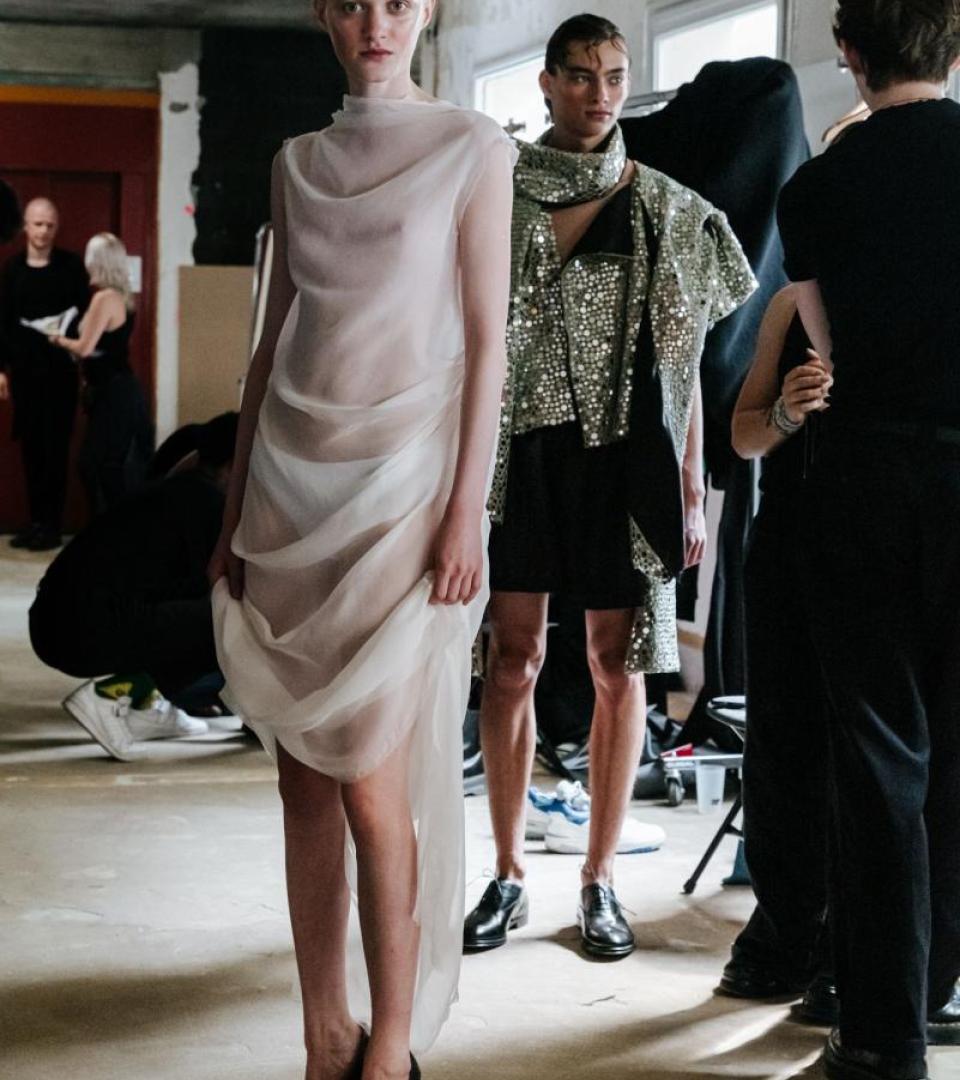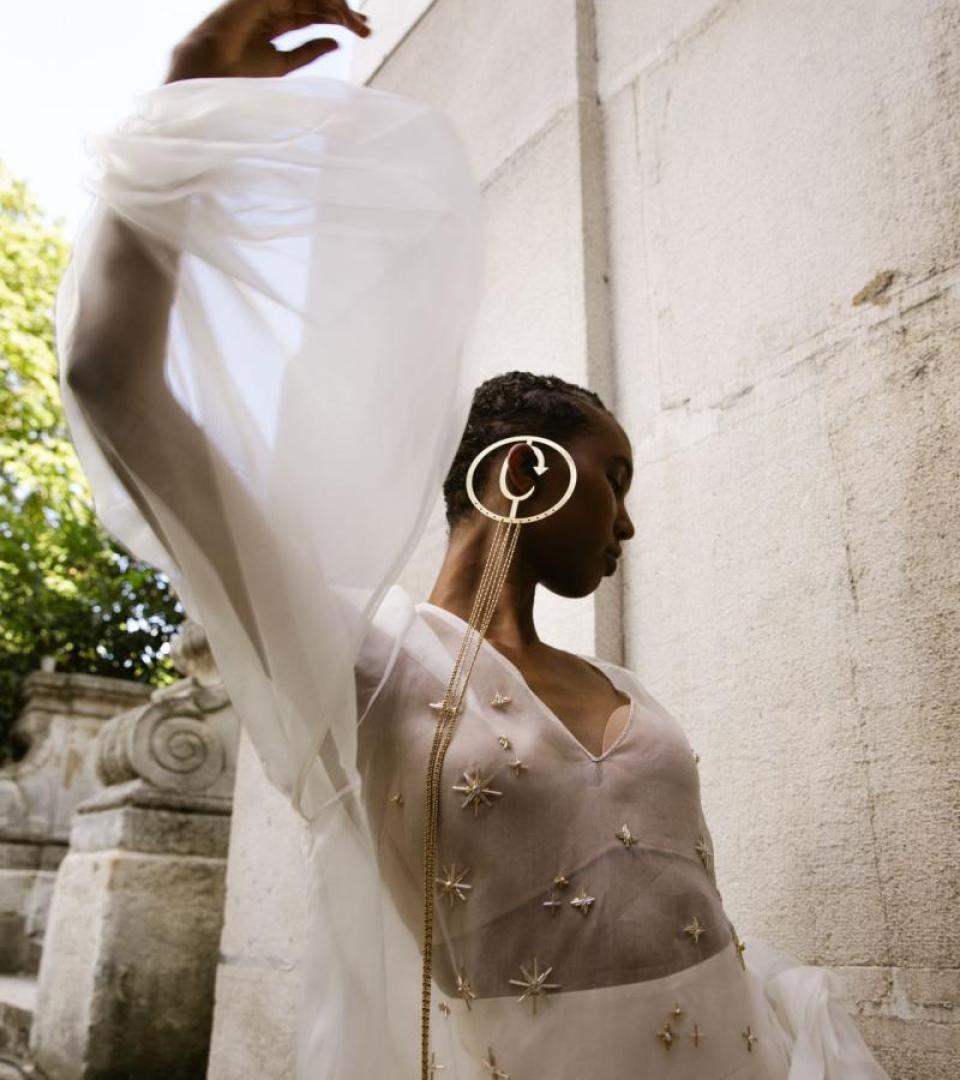This week, Ben Lakhdar-Rezgui appears on The New Paris podcast hosted by Lindsey Tramuta (available on Spotify and iTunes) where he discusses his research in a contemporary context. His Instagram, @Khemais_BenLakhdar provides a valuable understanding of cultural appropriation and other similar issues that remain ever-present throughout fashion.
What creates an emotional response for you in fashion today?
The coherence of the collection. When the discourse responds with authenticity to the visual proposition, and there is a close relationship between the storytelling and the clothes. I only cried once when I saw a show that really moved me: The Horn of Plenty by Alexander Lee McQueen from Fall Winter 2009. It was a magnificent show, a total art form that harmonises everything stridently and wonderfully!
What are you most curious to know about how designers work, how a collection comes together?
I'd love to have access to a studio at the very beginning of a creative process, to see how ideas are generated and turned into designs. As a historian of material cultures, I'm very interested in the object: its aesthetics, construction, fabrics and details. I'm very curious about this creative process, and especially about the ideas that sometimes don't make it into the final collection.
In what ways are you seeing progress in fashion mirroring progress in the wider world?
That's a very difficult question to answer. I have my doubts about the correlation between the evolution of fashion design and more global progress in the world. I would say that I'm optimistic and pessimistic at the same time. I hope that inclusion and sustainability, which are key societal issues, will be democratised in fashion design. I really hope that fashion can be in tune with the major challenges facing society today and tomorrow. And at the same time, it's clear that fashion is a huge capitalist machine, driven above all by the desire for profit.
If you could change one aspect of how we experience fashion today, what would it be?
Fewer fashion shows, less production, less pretty/disruptive/shocking images for social media; and more quality, invention and precision for clothes. Obviously, this is utopian, but I do believe in it!
What stands out as the most potentially disruptive influence on fashion in the near future?
Decolonial thinking, driven by extremely dynamic researchers and new designers! Fashion isn't just a Western concept, fashion isn't just about big brands, and it seems to me that the real disruption is coming from this new generation of designers who are working in depth on questions of representation and coloniality in the current fashion system.
This interview has been lightly edited.



